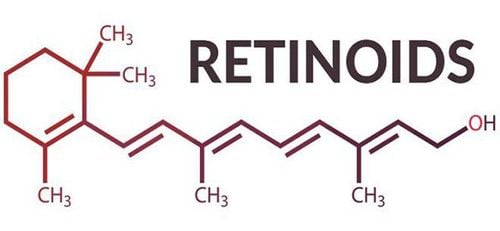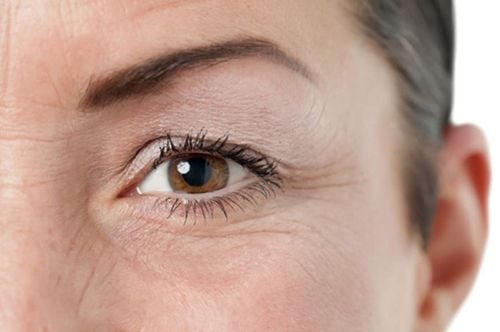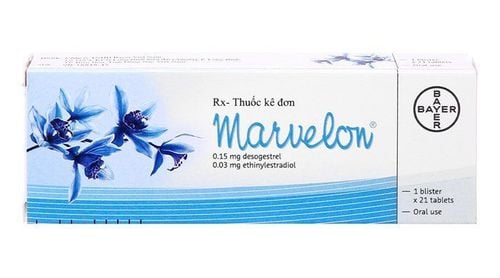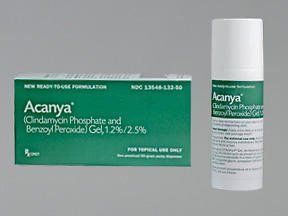This is an automatically translated article.
Puberty is often associated with many psychological problems of which acne is one of the most persistent and annoying problems. They not only affect the appearance but also affect the adolescent psychology. Therefore, the search for acne treatments is of great interest to many young people and Isotretinoin is used as a miracle cure for acne. So what is isotretinoin 20mg? Find out in the following article.
1. What is isotretinoin 20mg?
1.1 What is the composition of Isotretinoin 20mg Isotretinoin? Isotretinoin belongs to the group of retinoids - a group of chemical compounds in the form of vitamin A or chemically related to vitamin A.
1.2 Mechanism of action of Isotretinoin There are 4 causes leading to the appearance of acne:
Increased secretion of sebaceous glands. Due to bacteria Propionebacterium acnes Due to the inflammatory response of the pathogenesis mechanisms. The only drug that acts on all four causes of acne today is isotretinoin through reducing the causes of acne and inhibiting the growth of bacteria. In addition, Isotretinoin 20mg increased programmed cell death, decreased lipid metabolism gene expression and increased collagen synthesis.
1.3 Dosage form of Isotretinoin 20mg Isotretinoin 20mg is formulated for oral use in the form of capsules containing Isotretinoin 20mg and other excipients.
1.4 Indications of Isotretinoin The fact that Isotretinoin is highly effective in treating acne makes Isotretinoin 20mg easy to abuse, but the use of this drug also causes many unwanted effects. Therefore isotretinoin is listed as a prescription drug and is used in the following cases:
Severe acne Acne that does not respond to conventional treatments Acne causes many bad scars on the skin Acne Prolonged acne affects psychological and occupational.
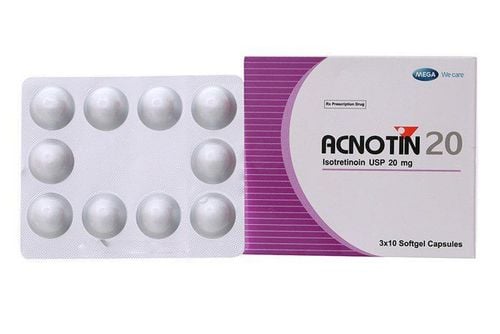
Isotretinoin 20mg được bào chế sử dụng theo đường uống dưới dạng viên nang
2. Isotretinoin 20mg side effects
Isotretinoin has major side effects affecting many aspects of the body and can leave serious complications as follows:
2.1 Excess vitamin A The most common is dry lips (accounting for 99% of drug users); dry skin, mucous membranes, desquamation (17.7-28.1%), less common symptoms such as nosebleeds, itching, dry eyes (1-11.5%), eye conjunctivitis, clouding The cornea has recovered and the contact lenses cannot be used.
2.2 Isotretinoin 20mg side effects on muscles, bones More common such as muscle pain, joint pain, back pain (especially in children and adolescents) (1-11.5%) , joint stiffness, bone pain or bone hyperplasia, fractures, tendinitis, and other bone changes.
2.3 Isotretinoin 20mg side effects on ears, eyes Eye: photosensitivity (1-11.5%) visual disturbances, dark adaptation disorders (nocturnal vision reduction), as rare as corneal opacities, cataracts, keratitis. Up to the ear: hearing loss at certain frequencies, high tone deafness.
2.4 Isotretinoin 20mg side effects on skin and other side effects. Because isotretinoin also increases programmed cell death, reduces lipid metabolism gene expression and increases collagen synthesis. Should appear some side effects such as:
Dry skin, peeling skin (17.7 - 21.1%) Erythema in the face. Sunburn on exposure to sunlight (skin is more sensitive to sunlight) Excessive sweating Less common symptoms:
Dermatitis festering granulomatous periungitis, nail atrophy, granulomatosis Hair loss Advanced acne (acne flares) Hirsutism Hyperpigmentation 2.5 Isotretinoin 20mg gastrointestinal side effects Digestive side effects are less common but still present such as:
Mild as nausea , constipation More severe such as gastrointestinal bleeding with black or bloody stools; colitis, ileitis, ulcerative colitis, pancreatitis. 2.6 Isotretinoin 20mg side effects on the liver Isotretinoin also leads to liver toxicity with pathologies such as:
Increased liver enzymes (after 4 weeks of taking the drug, 8.1% of people have it), temporary reversible hyperlipidemia with some manifestations of dark urine, clay-colored stools, yellowing of the skin or eyes. Hepatitis (In many cases, the change remains within normal limits and returns to baseline values within the treatment period)

Isotretinoin 20mg tác dụng phụ lên tâm thần và hệ thần kinh trung ương
2.7 Isotretinoin 20mg respiratory system side effects Bronchospasm (especially in patients with asthma), hoarseness.
2.8 Isotretinoin 20mg side effects on blood, blood vessels Decrease in white blood cells, red blood cells Increase or decrease in platelets Increase erythrocyte sedimentation rate Inflammation of the arteries Atherosclerosis . Coronary insufficiency. 2.9 Isotretinoin 20mg mental and central nervous system side effects Fatigue lethargy, drowsiness Anxiety, mood swings and even depression (severe depression with suicidal thoughts), so doctor Physicians must screen patients for signs of depression before deciding to administer isotretinoin to a patient. Behavioral disorders Increased intracranial pressure Epilepsy. 2.10 Some other side effects Decreased resistance, increased gram-positive (skin-mucosal) infections because of Staphylococcus Aureus Diabetes mellitus Laboratory tests: increased cholesterol, increased serum triglycerides, increased blood uric acid. Therefore, care should be taken in patients with a family history of dyslipidemia, diabetes, obesity, or alcoholism.
2.11 Side effects on pregnant and lactating women This is the most dangerous side effect of Isotretinoin 20mg. For pregnant women: causing abnormal development of the fetus, with the rate of birth defects up to 28% such as:
Excessive hydrocephalus in the fetus Microcephaly Affects Cognitive ability: learning difficulties and developmental acupuncture in children Physical abnormalities: malformations of the eyes and ears Cleft palate Heart defects: hypoplastic left heart syndrome, ventricular septal defect or tetralogy of Fallot . In addition, there are many other malformations of blood, bones and muscles. According to statistics, up to 20% of mothers have miscarriages due to self-administration of isotretinoin. For infants, mothers should not use isotretinoin while breastfeeding. Therefore, Isotretinoin 20mg is contraindicated for women intending to become pregnant, pregnant women and women who are breastfeeding.
3. Drug interactions of Isotretinoin 20mg
The use of Isotretinoin 20mg with some drugs can cause interactions, so you should tell your doctor about the medicines you are taking and here are some drugs that affect the use of isotretinoin 20mg:
Vitamin A : do not take drugs with vitamin A to avoid symptoms of vitamin A excess Tetracyclin: there have been cases of increased intracranial pressure when using isotretinoin with tetracycline, so the simultaneous use of 2 drugs should be avoided. Preparations containing low-dose progesterone: reduced effect when co-administered with isotretinoin Ketoconazole: Increased plasma concentrations of corticosteroids when co-administered with isotretinoin reduces the clearance of these two drugs.

Isotretinoin 20mg chống chỉ định cho phụ nữ có ý định mang thai, phụ nữ mang thai
4. How to use and store Isotretinoin 20mg
Take Isotretinoin 20mg exactly as directed by your doctor Do not crush or chew the medicine when taking it. Take with a full glass of water and do not lie down for 10 minutes. Do not take more than the dose prescribed by your doctor. Store at room temperature, keep Isotretinoin in a cool place away from light. Isotretinoin is a retinoid drug that is prescribed for the treatment of acne problems. To ensure effective use, users should carefully read the instructions and consult a doctor, professional pharmacist.
Follow Vinmec International General Hospital website to get more health, nutrition and beauty information to protect the health of yourself and your loved ones in your family.
Please dial HOTLINE for more information or register for an appointment HERE. Download MyVinmec app to make appointments faster and to manage your bookings easily.




